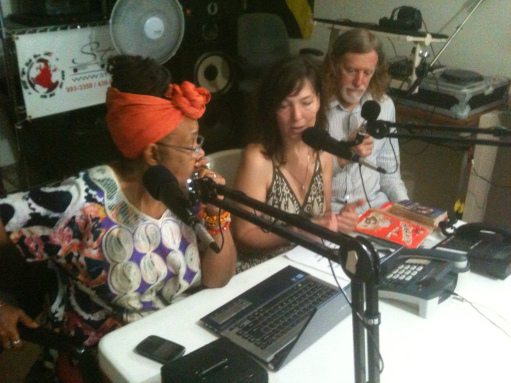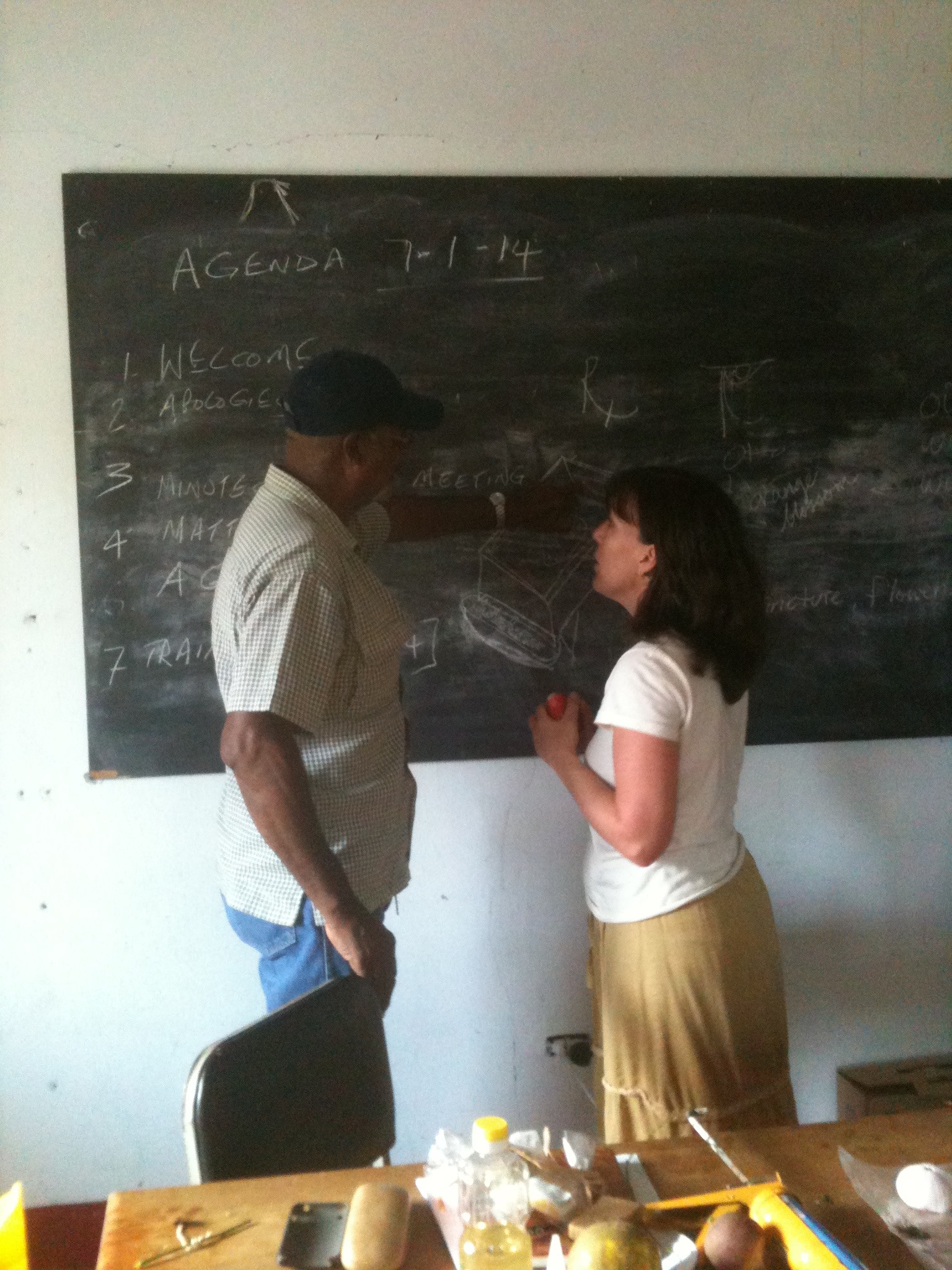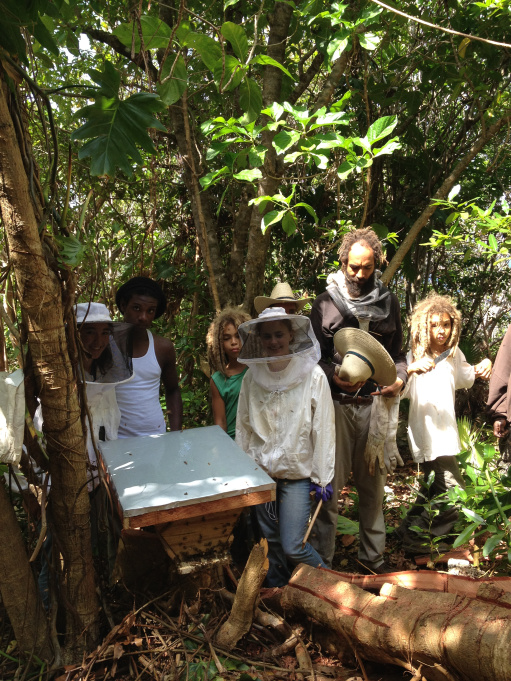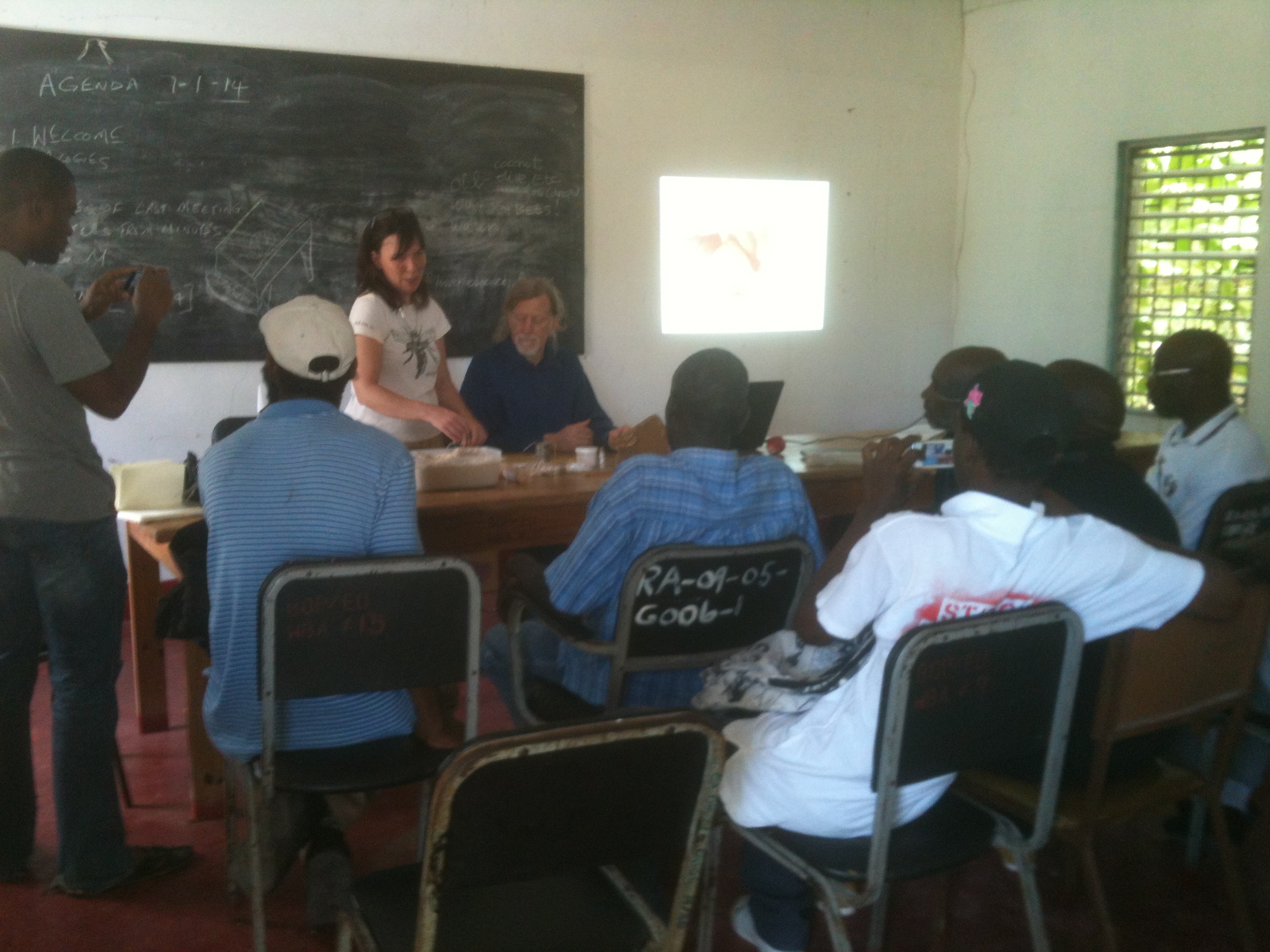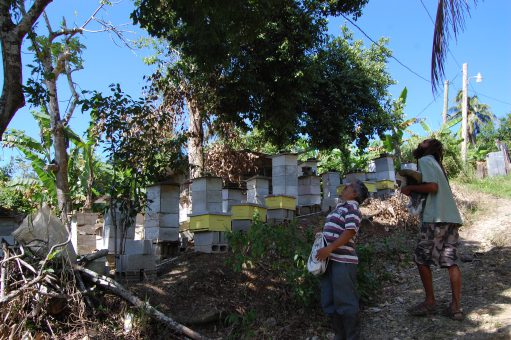As part of a USAid Farmer:Farmer and Partners of the Americas Program Laura Bee Ferguson at the College of the Mellissae was offered the opportunity to travel to Jamaica for a one-month volunteer beekeeping study and service trip. Service included travelling with a team throughout the island to teach on pesticides, value-added hive products, candle making, history of beekeeping and female beekeeping entrepreneurship.The volunteer team was also given the opportunity to be guests on radio shows, speak to agricultural representatives and meet beekeepers throughout the island.
Jamaica as an island has taken a proactive stance on the disease, parasite and CCD issues faced in America and has sealed its border to the import of bees and bee products, including genetic stock by way of drone sperm for artificial insemination. This has created an intense honey market where the only honey used, sold and allowed in Jamaica is produced locally. In 2009 over 150,000 gallons were produced and immediately consumed by export and the market needs.
Jamaicans see honey first as medicine and then as a luxury item. One taste of the ultra-clear Logwood honey, which is the flavor of paradise and evocative of pure tropical perfume, and you will understand the connotations of luxury! In a country where people make approximately $15/day average, one can easily see why the high dollar item is deemed beyond the scope of the average budget. The prices are roughly equivalent to US prices, but the wage is less than 25%! In addition, plentiful sugarcane provide much of the country’s sweetening agents leaving honey to be something of a high-falutin’ cousin.
As we are discovering working with the island beekeepers, the Jamaican people truly rallied around the idea of herbal-infused, value-added honeys, venom medicines and wax salves. Such interest surely proves that Jamaica is primed to build beekeeper profits in this way. Identifying the market becomes another thing altogether when considering the low wages and lack of centralized markets as many Jamaicans create businesses roadside rather than through national distribution or large farmer’s markets. Inability to find such simple things as wicks and essential oils compound industry growth issues.
The island has been experiencing some foulbrood and Varroa problems but fortunately hive beetles, wax moth and CCD have not become as commonplace as in the United States. The year-round warm weather interrupted by a 2-3 month rainy season allows bees the potential to live in feral colonies and genetically influence kept bees. This naturally increases the viability and adaptability of the entire island bee population as survivor strengths will become the dominant in a largely open-mated beekeeping environment. The island residents seem to feel that this should take care of breeding issues and that inbreeding won’t become a problem as opposed to the over-breeding practices faced in the States. However, on a land mass approximately the size of one of our smaller states, it seems that inbreeding will eventually become an issue and the conversation about utilizing imported sperm may need to be allowed into the discussion sooner rather than later.
The top-bar and natural beekeeping methods are on the rise in Jamaica, largely through the plucky optimism of Yerba Buena Farm and program administrators Kwao and Agape Adams. Building on Jamaica’s self-identification as “pure and natural” they have been boldly promoting a treatment-free style of beekeeping.
Top bars, particularly Les Crowder’s affordable and adaptable design (see plans on his website: fortheloveofbees.com), are well suited to the tropical climate and economy. Hive designs have even been made of wicker, woven bamboo and cloth to account for the high humidity. They seem to be working beautifully and are catching the interest of beekeepers across the nation.
Promoting treatment-free beekeeping and informing farmers and beekeepers of the lesser known studies regarding neo-nicitinoids and other pesticides (in AND out of the hive) has brought the same level of surprise and intuitive acceptance as we find in the US. Perhaps, with their independent attitude Jamaicans will find a way to limit the encroachment of chemical, mono-cropping agriculture.
At this time, possibly 80% of the country is ripe with organic, nearly year-round forage. The difficulties faced here are the economic inability to grow due to lack of flexible income for product development, limited market and difficulty in accessing materials and infrastructure to add value, package and promote products.
As we are seeing in the United States, female beekeepers are on the rise in Jamaica. This may truly invigorate the industry with fresh ideas and potentially influence the market (and beekeeper’s profit and sustainability) with diversity in bee products such as lotions and soaps. Although exporting honey is difficult to manage due to intense regulations, there is a possibility of exporting related goods. Supporting a grass-roots market is a great way to see the industry develop enough so that beekeepers are able to reinvest and grow.
Should you ever get a chance to experience Jamaican honey or products, make sure to snatch up enough to give as gifts. There is something very special about the product and the financial support goes a long way in this economically impoverished country.
Supporting Island beekeepers through offerings of industry kits would be a great endeavor for bee clubs in the States. Non-culturally-specific candle molds, wicks, essential oils, ingredients for making soaps and lotions, appropriate containers for balms, bars, lotions etc, and mesh for bee suits would be great ways to add vitality to this struggling industry in a country that might just be the sweetest place on earth.
To support Jamaican Beekeepers contact Laura Ferguson (USA volunteer) at laurafergusonabc@gmail.com or Agape Adams (Jaimaca) at yerbabuenaja@aol.com.

